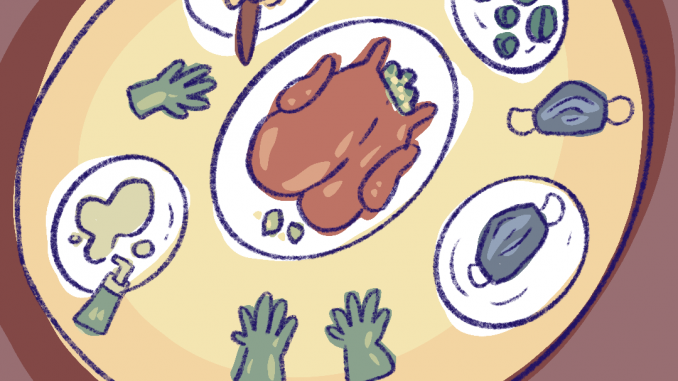
In an email sent to students on Nov. 9, Mark Denys, director of Student Health Services, recommended that students self-quarantine for two weeks, avoid attending any in-person gatherings with anyone outside of the household and reduce travel risk by avoiding public transportation in preparation for fall break, The Temple News reported.
Temple University’s fall break starts a few days before Thanksgiving. Like almost every other holiday this year, the celebrations will be upended by the COVID-19 pandemic.
It is understandable that students want to go home and see family during the break, but they should do so with caution. Students should be especially careful while visiting elderly loved ones for Thanksgiving by self-isolating for two weeks — starting now — or, if they cannot, minimizing contact with people outside of the household.
While it may be impossible for essential workers, like myself, to quarantine for two weeks, we can be thoughtful of our actions and avoid unnecessary, risky situations like parties, meals out and “friendsgivings.”
Isolating for two weeks ensures one is not contagious, but even one week is better than none as most infections happen in the first five to seven days of exposure, said Aimee Palumbo, an assistant epidemiology professor.
“It’s about limiting the travel between places as much as you can,” Palumbo said. “If you do have to come back, then you have to be mindful of where you’ve been. If you can’t isolate, then be mindful of activities, always but especially now because we’re going to see more vulnerable people.”
Philadelphia Health Commissioner Thomas Farley urged residents on Oct. 27 to cancel all Thanksgiving plans and stay home as much as possible as COVID-19 cases are rapidly rising in Philadelphia and elsewhere.
In addition, the virus is expected to surge and potentially make the winter months the worst period of the epidemic, The Temple News reported.
People celebrating Thanksgiving should avoid using shareable items like serving utensils, bring individually prepared food as opposed to a traditional potluck and wear masks while not eating, according to the Centers for Disease Control and Prevention.
While students may be excited to see family members they have been separated from for months, we must ensure we are protecting immunocompromised relatives during the holiday season.
Hannah Mckinney, a first-year epidemiology masters student, has been living in her hometown of Doylestown, Pennsylvania this semester because her classes are remote.
However, her extended family won’t be together for Thanksgiving because her aunt lives with her vulnerable grandmother, she said.
“My family means the world to me, and we always spend the holidays together, so I know this Thanksgiving is going to feel different,” Mckinney added. “Since I can’t see my family, I’m hoping to take the week for myself and relax and recharge before finals.”
The CDC designated activities with various levels of risk that people can partake in on Thanksgiving. Lower risk activities include having dinner with people in the same household, moderate risk activities include having a small outdoor dinner with family and friends, and higher risk activities include attending large indoor gatherings with people outside of one’s household, according to the CDC.
Rachel Rakowski, a senior public health major, said she will be alone during the holiday weekend while her parents are visiting her brother in New England. This is the first year her family had to cancel their annual trip to Mexico, she said.
“As a public health student, I’m not really doing anything now that could lead to me getting sick in the first place,” Rakowski added.
Traveling long distances, especially by airplane or train, can potentially spread COVID-19 outside of the city. Additionally, students returning to the city after engaging in risky behavior during fall break could bring infection back to Philadelphia.
Temple announced at the beginning of the semester that all classes would be virtual starting Nov. 20 to decrease the likelihood of students coming back to campus. Students who do not need to return to the city should take this opportunity to stay home and reduce the risk of spreading COVID-19 around campus, according to the announcement.
Between Nov. 16 and Nov. 20, Temple will be offering limited free COVID-19 testing for students leaving for fall break. Students should receive a COVID-19 test before going home and continue to follow social distancing guidelines after they test negative.
Although I am disappointed in not being able to celebrate Thanksgiving normally this year, such as by watching the Philadelphia Thanksgiving Parade on television, I am thankful for my health, and I will continue two holiday traditions that present little to no risk: preparing a meal with my boyfriend and taking a much-needed nap.


Be the first to comment